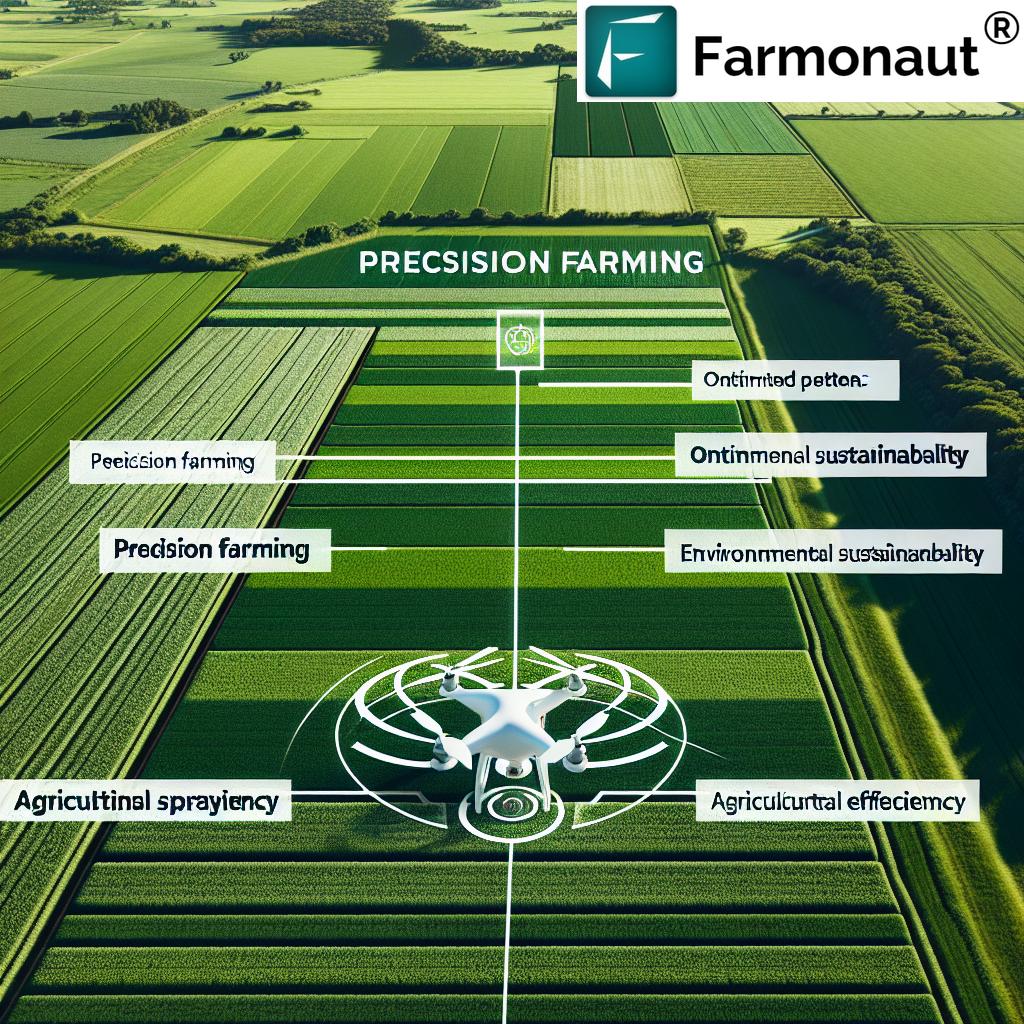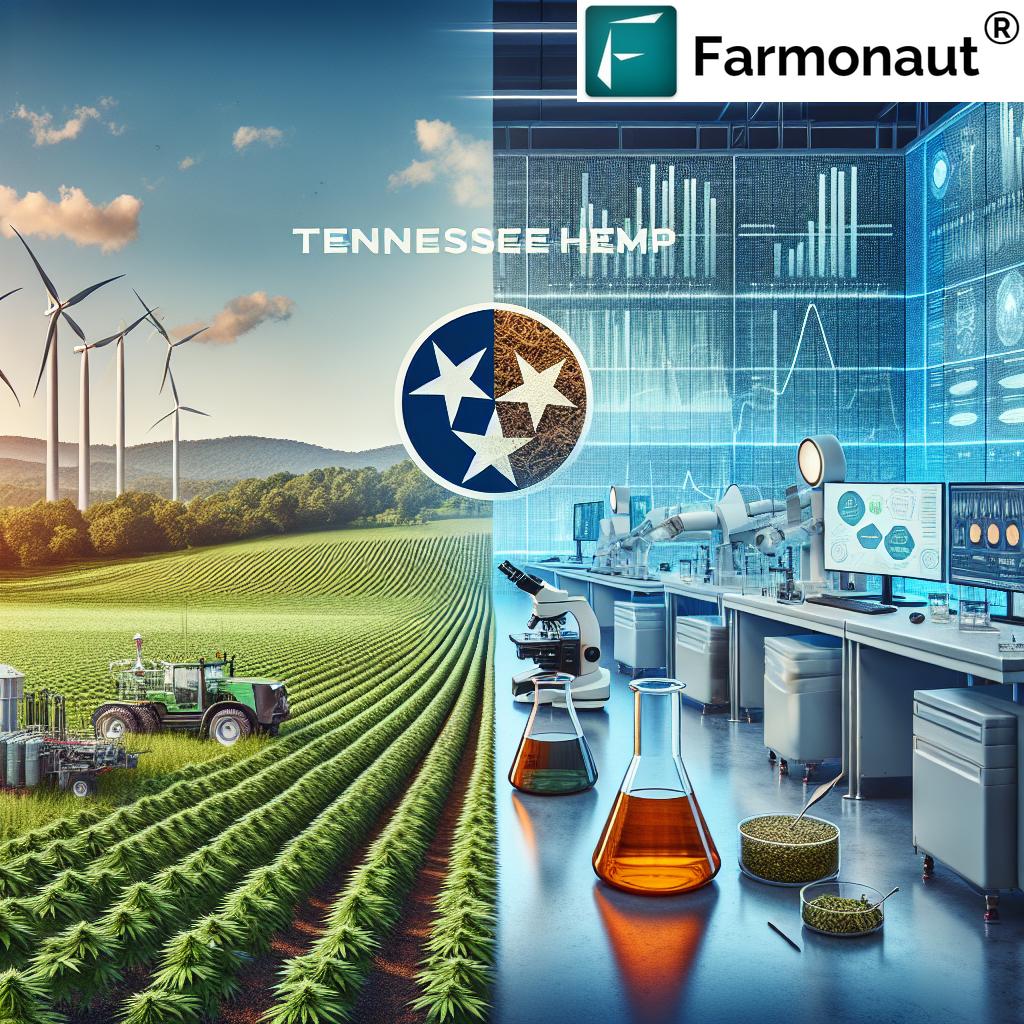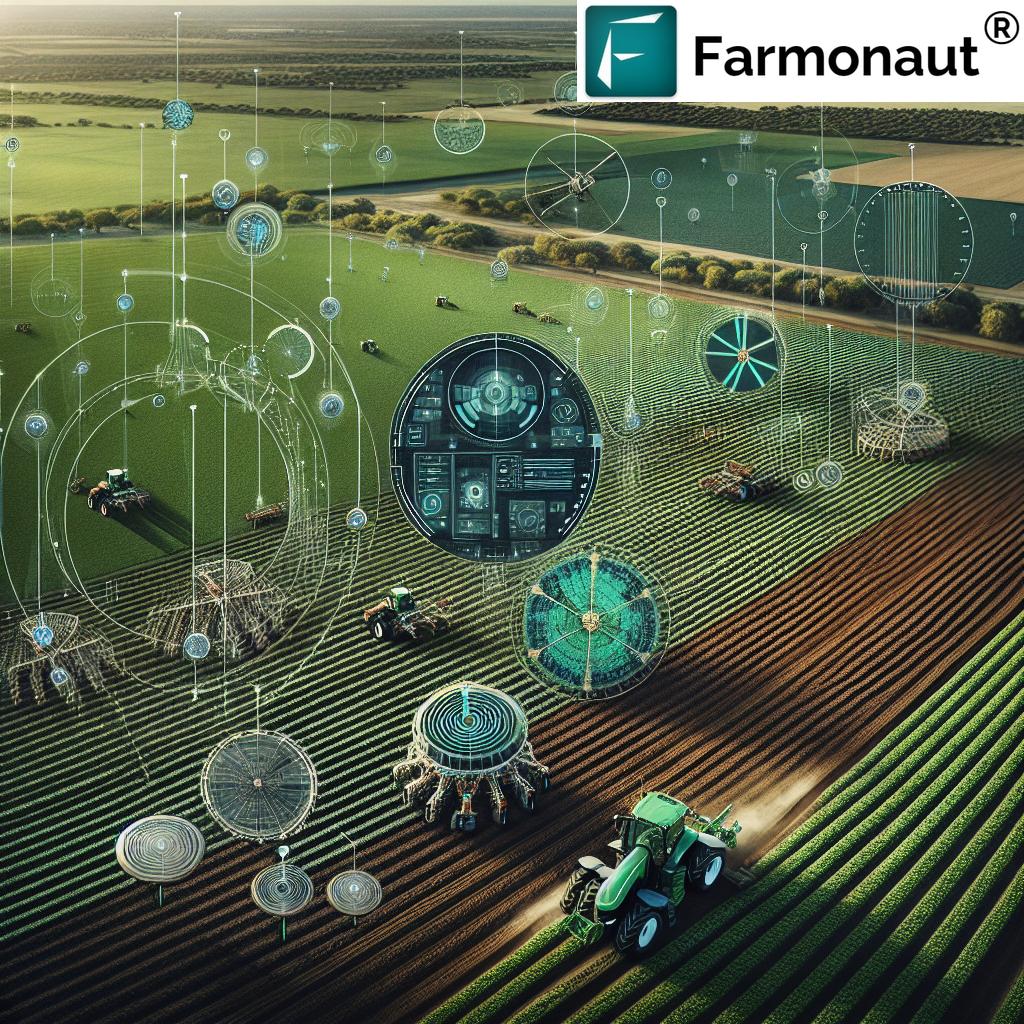Revolutionizing Waste Management: Becker County’s Innovative Organics Recycling Program Boosts Sustainability in Minnesota
“Becker County’s new organics recycling program aims to divert up to 200 tons of organic waste from landfills in its first year.”
In the heart of Minnesota, Becker County is taking a bold step towards a greener future with its innovative organic waste recycling program. As we delve into this groundbreaking initiative, we’ll explore how this small county is making a big impact on environmental sustainability and waste management. Join us as we uncover the details of this exciting program that’s set to transform the way we think about organic waste.
The Genesis of Becker County’s Organics Recycling Program
Becker County, nestled in the beautiful landscape of Minnesota, has long been committed to environmental stewardship. However, like many regions across the United States, it faced a growing challenge: the mounting volume of organic waste in landfills. Recognizing the need for change, county officials embarked on a mission to develop a comprehensive organic waste recycling program that would not only reduce landfill waste but also promote sustainable practices throughout the community.
The catalyst for this transformative project came in the form of a $178,000 grant from the Minnesota Pollution Control Agency. This financial boost provided the necessary resources to launch an ambitious organics recycling program aimed at tackling food waste composting and significantly reducing organic waste in landfills.
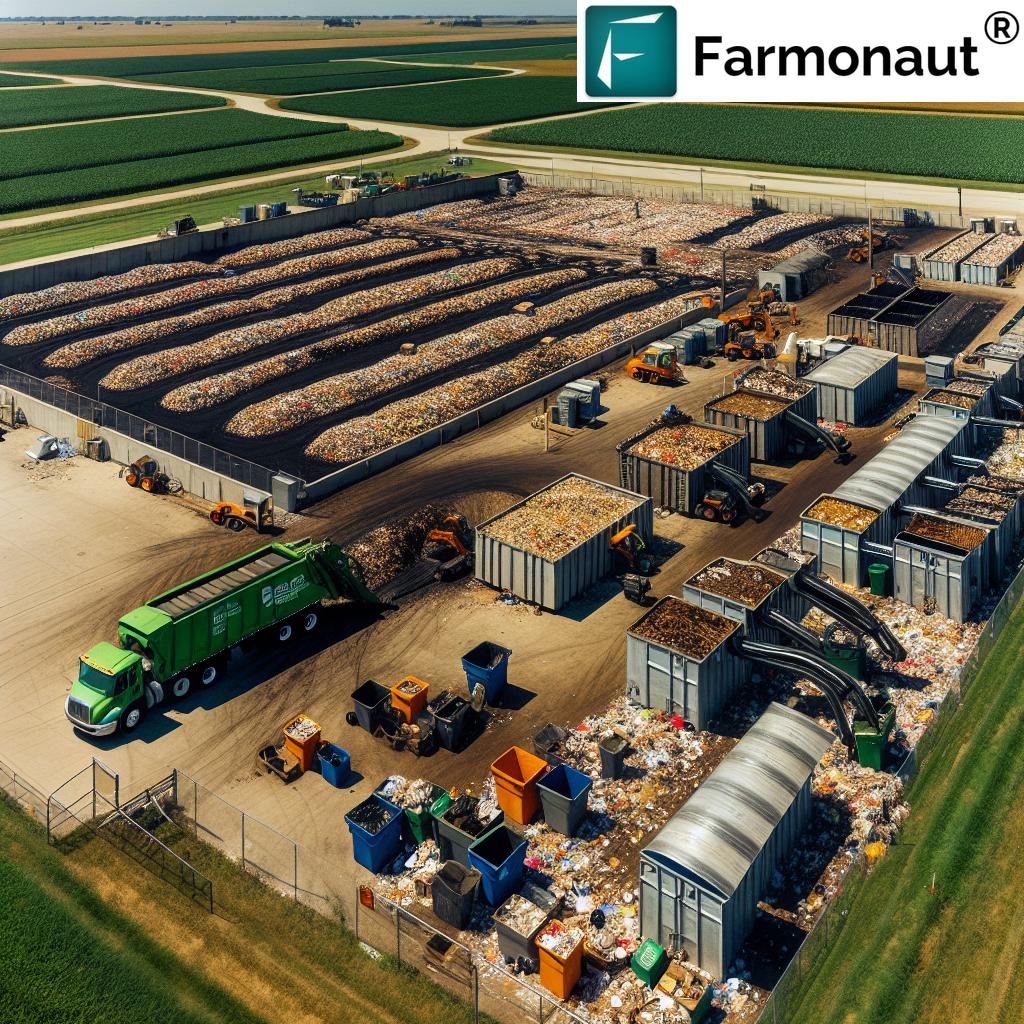
Understanding the Scope of the Problem
Before we dive deeper into the program’s details, it’s crucial to understand the magnitude of the organic waste issue. In Becker County, as in many parts of the country, organic materials constitute a staggering 25% to 30% of the total waste stream. This includes a wide array of items such as:
- Food scraps (fruits, vegetables, meats, dairy products)
- Coffee grounds and filters
- Pizza boxes and other food-soiled paper
- Compostable containers
- Yard waste
Previously, much of this organic material was incinerated at the Perham Resource Recovery Facility. However, due to its heavy and wet nature, organic waste is inefficiently processed in traditional incineration systems, leading to increased energy consumption and reduced efficiency in waste management.
The Innovative Approach to Organic Waste Management
Becker County’s new organic waste recycling program is designed to address these challenges head-on. By implementing a comprehensive county organics collection system, the initiative aims to divert a significant portion of organic waste from the traditional garbage stream. Let’s explore the key components of this innovative program:
1. Targeted Collection from Key Sources
The program primarily focuses on collecting organic waste from three main sources:
- Schools: Implementing school recycling initiatives to educate students and reduce cafeteria waste
- Restaurants: Partnering with local eateries to separate food scraps and compostable items
- Grocery stores: Collecting unsold produce and other organic materials
By targeting these high-volume producers of organic waste, the program aims to make a significant impact right from the start.
2. Community Participation and Accessibility
While the program doesn’t offer curbside pickup for residential organic waste, it provides accessible options for community members to participate:
- Designated bins at recycling areas, including the county fairgrounds
- Strategic locations throughout Detroit Lakes for convenient drop-off
- Distribution of compostable kitchen pails and bags to households
These measures ensure that residents can easily contribute to the organic waste diversion efforts, fostering a sense of community involvement in sustainable waste disposal practices.
3. Specialized Equipment and Infrastructure
To support this ambitious program, Becker County is investing in specialized equipment designed for efficient organic waste management:
- Large roll-off containers for bulk collection
- Durable dumpsters for commercial use
- Smaller household collection bins
- Stainless steel sorting tables for schools
- Wheeled garbage containers for easy transport
This equipment will facilitate the collection and handling of organic waste, making the process more efficient and hygienic.
The Journey of Organic Waste: From Collection to Compost
Once collected, the organic waste embarks on a journey of transformation. Here’s how the process unfolds:
- Collection: Organic materials are gathered from designated bins and containers across the county.
- Sorting: The collected waste is sorted to remove any non-compostable items.
- Mixing: Organic waste is combined with clean wood waste to create an optimal composting blend.
- Transportation: The mixture is transported to the Glacial Ridge Compost Facility in Hoffman, Minnesota.
- Composting: At the facility, the organic material undergoes the composting process, turning waste into valuable soil amendment.
- Distribution: The finished compost is made available for use in agriculture, landscaping, and gardening.
This process not only diverts waste from landfills but also creates a valuable resource that can enrich soil and support sustainable agriculture practices.
Environmental Impact and Sustainability Goals
The Becker County organics recycling program is set to make a significant impact on local environmental sustainability. By diverting organic waste from landfills and incineration facilities, the program aims to:
- Reduce greenhouse gas emissions associated with landfill decomposition
- Decrease the energy required for waste incineration
- Conserve landfill space for non-recyclable materials
- Produce nutrient-rich compost for local agriculture and gardening
- Promote a circular economy approach to waste management
The program’s ambitious goal is to achieve an organic waste diversion rate of around 10%, which represents a substantial decrease in the overall waste produced in the county. Even this seemingly small percentage translates to a significant reduction in environmental impact when considering the total volume of waste generated annually.
“The program targets diverse sources, including schools, restaurants, and grocery stores, for county-wide organic waste collection and composting.”
Community Engagement and Education
The success of any recycling program hinges on community participation and understanding. Becker County recognizes this and has incorporated robust education and engagement initiatives into its organics recycling program:
- School Programs: Integrating recycling education into school curricula to foster environmental awareness from a young age.
- Public Workshops: Offering community workshops on composting techniques and the benefits of organic waste recycling.
- Business Outreach: Providing training and support for local businesses to implement effective organic waste separation practices.
- Online Resources: Developing a comprehensive website with guides, FAQs, and tips for proper organic waste disposal.
- Community Events: Organizing events to showcase the composting process and the impact of the recycling program.
By engaging the community at all levels, Becker County aims to create a culture of sustainability that extends beyond waste management into all aspects of daily life.
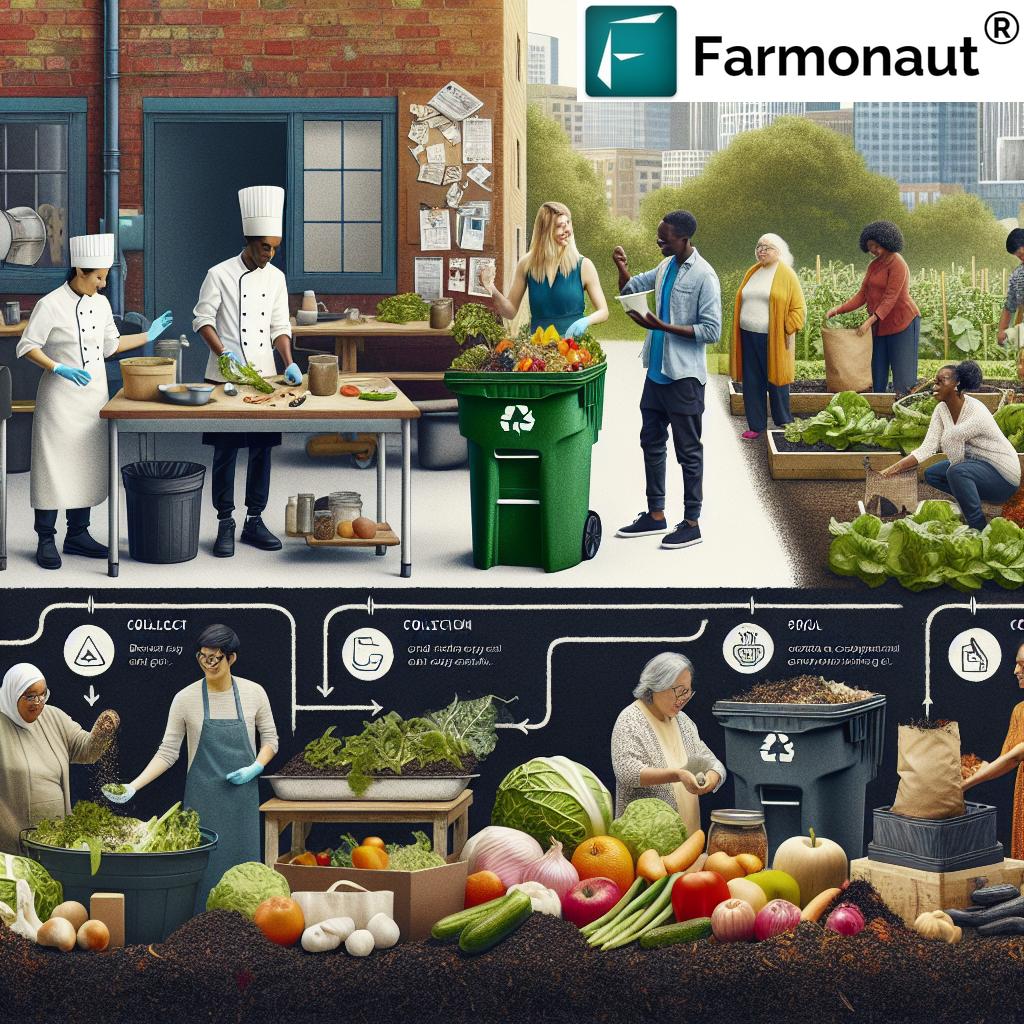
Economic Benefits and Job Creation
While the environmental benefits of the organics recycling program are clear, it’s important to recognize the potential economic advantages as well:
- Cost Savings: By diverting organic waste, the county can reduce the costs associated with landfill management and incineration.
- Job Creation: The program creates new positions in waste collection, sorting, and composting facilities.
- Local Agriculture Support: Producing high-quality compost can benefit local farmers and reduce the need for synthetic fertilizers.
- Green Business Opportunities: The program may spur the growth of eco-friendly businesses in the area, such as compostable product manufacturers or organic waste consulting services.
These economic benefits demonstrate that environmental sustainability and economic growth can go hand in hand, creating a win-win situation for the community.
Challenges and Solutions
As with any new initiative, the Becker County organics recycling program faces several challenges. However, the county has developed strategies to address these issues:
- Challenge: Ensuring proper sorting and preventing contamination
Solution: Comprehensive education programs and clear labeling on collection bins - Challenge: Managing odors and pests at collection sites
Solution: Frequent collection schedules and use of sealed containers - Challenge: Encouraging consistent participation from businesses and residents
Solution: Offering incentives and recognition for active participants - Challenge: Balancing program costs with environmental benefits
Solution: Continuous monitoring and adjustment of the program to optimize efficiency
By proactively addressing these challenges, Becker County aims to create a robust and sustainable organics recycling program that can serve as a model for other communities.
Future Expansion and Long-Term Vision
While the initial phase of the organics recycling program is set to begin soon, Becker County has its sights set on future expansion and improvement:
- Exploring the possibility of establishing a local composting facility to reduce transportation costs
- Expanding the program to include more residential curbside pickup options
- Investigating innovative technologies for processing organic waste, such as anaerobic digestion for biogas production
- Collaborating with neighboring counties to create a regional approach to organic waste management
- Developing partnerships with local farms to create a closed-loop system for compost utilization
These long-term goals reflect Becker County’s commitment to continuous improvement and innovation in waste management practices.
Comparison: Before and After Implementation
To better understand the potential impact of the Becker County Organics Recycling Program, let’s take a look at a comparison of key metrics before and after implementation:
| Metric | Before Program | After Program Implementation (Estimated) |
|---|---|---|
| Annual organic waste in landfills (tons) | 2,000 | 1,800 |
| Participation rate in organics recycling | 5% | 30% |
| Number of participating schools | 2 | 15 |
| Number of participating restaurants | 5 | 50 |
| Number of participating grocery stores | 1 | 10 |
| Community recycling sites with organic waste bins | 0 | 10 |
| Compostable kitchen pails distributed | 0 | 5,000 |
| CO2 emissions from organic waste (estimated tons/year) | 1,500 | 1,200 |
| Cost of waste management for the county (annual) | $1,000,000 | $950,000 |
| Jobs created in the recycling sector | 0 | 15 |
This table illustrates the significant improvements expected across various aspects of waste management and community involvement. The program’s positive impact on environmental sustainability, community engagement, and local economy is evident in these projected figures.
Collaboration and Knowledge Sharing
Becker County’s organics recycling program isn’t just about local impact; it’s also about setting an example and sharing knowledge with other communities. The county plans to:
- Document and share best practices with other municipalities
- Participate in regional and national conferences on sustainable waste management
- Host site visits for officials from other counties interested in implementing similar programs
- Collaborate with universities for research on the long-term impacts of organic waste diversion
By fostering a spirit of collaboration, Becker County aims to amplify the impact of its program beyond its borders, contributing to a broader movement towards sustainable waste management practices.
The Role of Technology in Organic Waste Management
While Becker County’s program focuses on traditional composting methods, it’s worth noting the role that technology can play in enhancing organic waste management. Companies like Farmonaut are at the forefront of using satellite technology and AI to optimize agricultural practices, which can indirectly support organic waste management efforts:
- Satellite-based crop health monitoring can help reduce food waste at the source by improving crop yields and quality
- AI-driven advisory systems can guide farmers on optimal resource use, potentially reducing organic waste in agriculture
- Blockchain-based traceability solutions can improve supply chain efficiency, reducing food waste in transit and storage
While not directly involved in Becker County’s program, these technological advancements highlight the potential for further innovation in the field of organic waste management and sustainable agriculture.
Explore Farmonaut’s innovative solutions:
FAQs About Becker County’s Organics Recycling Program
Q: What items can be recycled through the organics program?
A: The program accepts a wide range of organic materials, including food scraps (fruits, vegetables, meats, dairy), coffee grounds and filters, food-soiled paper, compostable containers, and yard waste.
Q: How can residents participate if there’s no curbside pickup?
A: Residents can use provided kitchen pails to collect organic waste and dispose of it in designated bins at community recycling sites, including the county fairgrounds and other locations in Detroit Lakes.
Q: Will the program cost residents extra?
A: The pilot phase of the program will be available free of charge to participants. Future costs will be determined based on the program’s success and efficiency.
Q: How will the program benefit local farmers?
A: The compost produced from the program will be available for use in agriculture, providing local farmers with a rich, organic soil amendment that can improve crop yields and soil health.
Q: Can businesses of all sizes participate in the program?
A: Yes, the program is designed to accommodate businesses of all sizes, from small cafes to large grocery stores. The county will provide appropriate containers and guidance for efficient participation.
Conclusion: A Step Towards a Sustainable Future
Becker County’s innovative organics recycling program represents a significant step towards a more sustainable future. By tackling the challenge of organic waste head-on, the county is not only reducing its environmental footprint but also creating new opportunities for community engagement, economic growth, and educational outreach.
As the program rolls out and evolves, it has the potential to serve as a model for other communities across Minnesota and beyond. The success of this initiative will depend on the collective effort of residents, businesses, and local government working together towards a common goal of environmental stewardship.
We encourage all Becker County residents and businesses to embrace this opportunity to make a positive impact on their community and the environment. By participating in the organics recycling program, each individual can contribute to a cleaner, greener, and more sustainable future for generations to come.
Together, we can turn today’s waste into tomorrow’s resources, one compost bin at a time.
Earn With Farmonaut: Affiliate Program
Earn 20% recurring commission with Farmonaut’s affiliate program by sharing your promo code and helping farmers save 10%. Onboard 10 Elite farmers monthly to earn a minimum of $148,000 annually—start now and grow your income!








